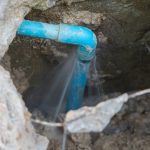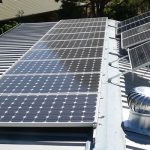Are you in the market for a new home? Congratulations on taking the next step towards homeownership! Whether you are a first-time buyer or looking to upgrade, there are many factors to consider before making this significant investment. To help you navigate the process, we have compiled a list of tenkey factors to consider when buying a new home. From location and neighbourhood to budget and future growth, these factors will guide you towards making an informed decision. So, if you are ready to explore the world of houses for sale in Stirling County and find your dream home, let us dive in!
-
Location and Neighbourhood
The location and neighbourhood of a home are vital considerations. Research the area’s proximity to your workplace, schools, shopping centres, and recreational facilities. Assess the neighbourhood’s safety, amenities, and access to transportation. When exploring houses for sale in Stirling County, consider factors such as the local community, nearby schools, parks, and healthcare facilities. A well-chosen location and favourableneighbourhood will enhance your daily life and contribute to the long-term value of your investment.
-
Budget
Determining your budget is a crucial step when buying a new home. Consider your financial situation, including your income, savings, and existing debts. Evaluate how much you can comfortably afford in terms of mortgage payments, property taxes, insurance, and maintenance costs. Remember to consider potential future expenses to avoid overstretching your finances. Setting a realistic budget will narrow down your options and ensure you focus on homes you can afford.
-
Home Size and Layout
Think about your current and future needs when considering the size and layout of a home. Determine the number of bedrooms and bathrooms needed, the size of the kitchen, and the overall square footage that suits your lifestyle. Consider your family’s needs and whether added space will be required for future growth. Understanding your spatial requirements will help you find a home that accommodates your needs both now and in the long term.
-
Condition of the Property
Before completing a purchase, it is essential to assess the condition of the property. Take note of any visible damage, structural issues, or signs of poor maintenance. Consider hiring a professional home inspector to evaluate the property thoroughly. They can find any underlying problems and provide you with an estimate of potential repair costs. Assessing the condition of the property will protect you from unexpected expenses and help you negotiate a fair price.
-
Builder’s Reputation
If you are considering a new construction home, research the builder’s reputation. Look for builders with a solid record of delivering quality homes and excellent customer service. Read reviews, visit their earlier projects, and inquire about any warranties or post-construction services offered. Choosing a reputable builder will ensure the construction and craftsmanship of your new home meet your expectations.
-
Resale Value
Even if you plan on living in your new home for a long time, it is essential to consider its potential resale value. Look for areas that show signs of future growth and development, as this can positively impact your property value overall. Research the local real estate market and analysecurrent trends to determine fluctuations in property values. Being mindful of resale value will help protect your investment and provide financial security.
-
Safety and Security
The safety and security of a home are paramount for your peace of mind. Research crime rates in the area and consider factors such as street lighting, community watch programs, and security systems. Assess the quality of the home’s locks, windows, and doors to ensure they provide adequate security. Conducting due diligence regarding safety and security will contribute to your overall satisfaction as a homeowner.
-
Future Development Plans
Consider any future development plans that might impact the area. Are there any upcoming infrastructure projects or commercial developments that could affect your quality of life or property value? Research local zoning ordinances to understand what types of developments are allowed in the vicinity. Being aware of future development plans will help you make an informed decision about the long-term prospects of the area.
-
Natural Disasters and Environmental Considerations
When buying a new home, it is crucial to assess the risks of natural disasters in the area. Research the region’s susceptibility to earthquakes, floods, hurricanes, or wildfires. Additionally, consider any potential environmental concerns, such as polluted water sources or contaminated soil. Understand the potential risks and act appropriately, such as obtaining the necessary insurance coverage, to protect your investment.
-
Homeowner’s Association (HOA)
If you are considering a property that falls under a homeowner’s association, carefully review the HOA rules and regulations. Understand the associated fees, restrictions, and any architectural guidelines that dictate how you can customize or alter your home. HOAs can influence your living experience, so ensure you are comfortable with their requirements before deciding.
Buying a new home is an exciting and significant life event. By considering these tencrucial factors – including location, budget, home size, condition, builder’s reputation, resale value, safety, future developments, natural disasters, and HOAs – you will be well-equipped to make an informed decision. Now that you understand the key factors to consider when exploring houses for sale in Stirling County or any other location, you can embark on your home buying journey with confidence.
















